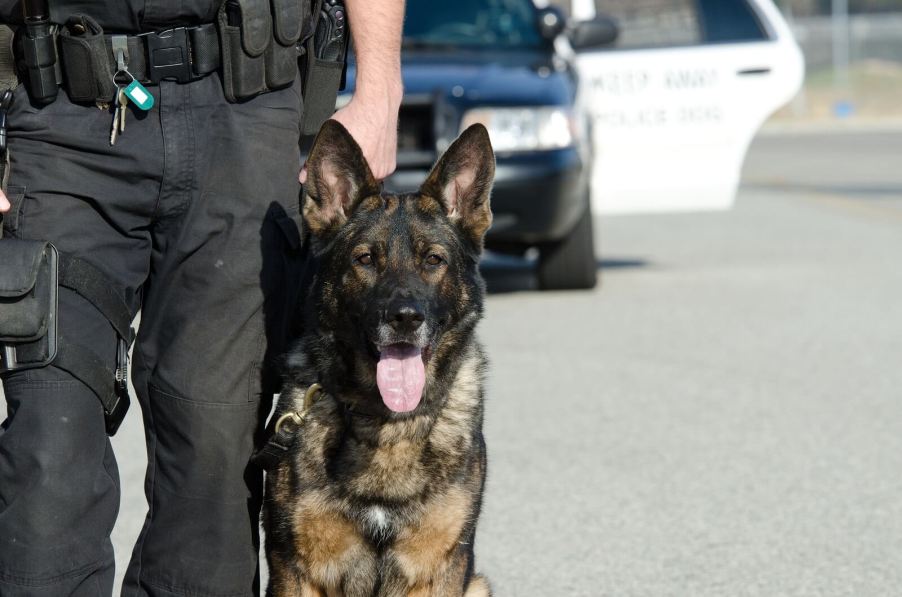
Police ‘drug checkpoint’ signs are actually a trap
There you are, driving along the highway when you see a “Drug Checkpoint, 1 Mile” road sign. You decide you don’t want to deal with waiting in line at a police stop and need gas anyway. So you take the next exit. Next thing you know, a police cruiser comes out of nowhere and pulls you over for not using your turn signal long enough. This move is especially tricky because there was never a drug checkpoint: the Supreme Court ruled it illegal to set up a roadblock to search cars for drugs.
A Redditor asked the Kansas-specific forum, “What’s up with the fake ‘drug checkpoints’ on I-35?” They were referring to signs that said “Highway Patrol Checkpoint” and specified “Drug Dogs in Use.” These signs popped up right before an exit, and the OP noted multiple Kansas Highway Patrol cars hiding on the exit road. “Seems pretty shady and sketchy to me, using a fake checkpoint as a ruse to look for people driving off the freeway and stopping them for a warrantless search.”
One commenter said they narrowly avoided getting caught up in this old bait-and-switch. “My girlfriend was driving and we panicked for a second and I said ‘keep on going’ because it felt like a trap and sure enough it was exactly as you described.”
The kicker is that there was never a traffic stop to begin with. Another commenter revealed, “As others have said, the ‘checkpoints’ are a ruse; the police have vehicles posted at the next exit (usually leading to a remote road that regular travelers wouldn’t normally visit) and then pull people over if they see them ditching anything out the windows, failing to signal, etc.”
Why is there no traffic stop to check for drugs? Because police aren’t allowed to set one up. The “Online Paralegal Programs” helpful website reveals that the Fourth Amendment protects “against unreasonable searches and seizures” by specifying that police need “probable cause” to search your vehicle. And there are very few exceptions.
Motorists challenged police departments’ right to set up a DUI stop roadblock. But the police argued the DUI stops offered protection from “imminent public danger” and the Supreme Court upheld them. What about border patrol checkpoints? The Supreme Court also ruled that agents may legally search anything without a warrant. But when random drug search stops were challenged, the Supreme Court made an interesting decision.
“We cannot sanction stops justified only by the generalized and ever-present possibility that interrogation and inspection may reveal that any given motorist has committed some crime.” The Supreme Court ruled that random checkpoints for finding drugs are unconstitutional.
So a sign that says “Drug Checkpoint in 1 Mile” is a trap set by police. Often, signs warning that upcoming checkpoints or stops will use drug dogs have similar intentions. What intentions? The hopes that drivers, used to DUI checkpoints, will believe police are searching vehicles for drugs. Thus, drivers actually transporting drugs will single themselves out by exiting the highway. Online-Paralegal-Program.com adds that police will often stop exiting cars for committing “illegal u-turns,” “littering,” or even “suspiciously exiting” the highway.



